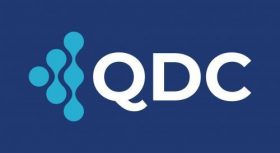WBS Training – Alexander Sokol
March 31, 2023
Alexander Sokol is co-founder of Numerix and now owns CompatibL. We had a chance to discuss his entrepreneurial history and views on programming, machine learning, and sharing research in the financial industry.
Interviewer: Let’s begin with the highlights of your entrepreneurial career as founder of the financial software firms Numerix and CompatibL.
Alexander Sokol (AS): I started my career in finance in 1996 when I cofounded Numerix with two other scientists, Michael Feigenbaum and Nigel Goldenfeld, and investor Michael Goodkin during the fairly early stages of quantitative finance. Banks were hiring academics, scientists and physics, math, and computer science graduates because they were transitioning towards pricing derivatives and assessing risk through the use of math- and science-based models.
As we started the company, we learned one of the problems for Wall Street was that Monte Carlo simulation is slow and we developed a Monte Carlo number generator with accelerated calculation capabilities. Even now, I’m surprised we were able to do it because we did not have a lot of experience in the financial industry at the time. However, we knew we had a good product in our Monte Carlo engine, and we took it to Merrill Lynch. They tested it, saw that it outperformed whatever they were using then, and bought a license for it. That’s how Numerix started.
Naturally, we realized that software companies provide a lot more than just Monte Carlo and over time we built more products. First, we produced libraries for quants to use in building software and eventually complete software packages. When Numerix was acquired in 2003, we were offering a full suite of software for pricing and risk management. Following the acquisition, I started CompatibL, which continues in the same tradition – having software that’s extremely good in how it handles analytics and math and enables us to provide a full suite of software applications for the financial industry.
Interviewer: If you look at intersection of quant finance and technology today, what are the most promising application areas?
AS: One of the most striking developments right now is how the large language models are thriving and becoming competitive products. That said, while there are applications for artificial intelligence and machine learning in the financial industry, the stakes are so high that we must find a balance between being at the cutting edge of technology and remaining extremely conservative in implementation. Chat GPT, for example, has an issue that many software developers have warned about, which could be called “hallucinations,” or even “lies.” It comes up with facts by interpolating various types of information found on the Internet; sometimes the interpolation is successful and fairly accurate and sometimes it’s not.
As a practical business application, many firms are experimenting with Chat GPT for writing business correspondence. In that case, it’s not the end of the world if it makes some mistakes. However, if AI were applied in a bank decision-making process, interpolated, and made the wrong assumptions about risk management, that could lead to bank failure. So, in our own ML and AI model development work we err on the side of caution. The models for the financial markets that we’ve developed at Compatibl are fully compliant, with trustworthy ML criteria, where you can understand exactly what a model does with the data that it is trained on. You can also control which data you train on and in that sense, they’re as transparent as traditional financial models based on stochastic differential equations that have been used on Wall Street successfully for several decades.
Interviewer: Having developed software for many years, could you comment on the benefit of learning Python versus other languages like C++?
AS: Perhaps as important as the science we do is exactly how we implement it because that can have a tremendous impact on productivity, including the ability to share data and code. We are in transitional moment these days. The quant community has finally embraced Python, where the traditional language for quants has been C++. Just as English is the common language of international communication, C++ was the common language of quants.
The reason for the emergence of Python as the predominant programming language, even with its shortcomings – being an interpreter, speed issues, and so on – lies in how easy it is to use packages. In C++, you have header files and somebody else has header files and they don’t always compile together. Then it becomes difficult to use somebody else’s package due to incompatibilities that have nothing to do with the math, but instead with the details of how C++ works.
In Python, everything is standardized and has very simple interfaces. It doesn’t require the exchange of massive header files and a huge number of packages in Python can be used alongside each other. Python definitely makes it less intimidating for students and people who don’t have any formal computer science training. They can learn Python very quickly and although they may never write a large open source library, they will be able to write a simple script. Python has lowered the barrier to entry for programming, empowering the users of all types to get on with their research. In fact, lately C++ is trying to become a little bit like Python in the sense of providing a broader set of standard classes for everybody to share.
Interviewer: You’ve been involved with WBS and the quant finance conferences for quite some time. Could you describe what you’re finding over the years in your participation?
AS: Along with academic publications, the conference circuit is absolutely critical for moving quant research forward. There wouldn’t have been such progress in quantitative finance, in the science of investing and risk management, without conferences like WBS. It’s a unique place where academia and the industry meet to exchange ideas and assess the reaction of the community to their research and the advancement of financial industry. Many innovations that we take for granted today were presented for the very first time at one of the WBS conferences.
Interviewer: What are you seeing as the most interesting opportunities for people who are considering starting, or joining emerging companies?
AS: There are a number of interesting directions to go in these days. I observe research in quantum computing with great interest. I think it’s a tremendous opportunity, but I don’t know how many years it will take until quantum computing becomes practical for the industry. You can read many papers published in places like ArXiv and you will find good research problems, but the authors are often using a simulator of a quantum computer as opposed to an actual quantum computer due to the cost of running one and other limitations.
For an immediately practical and feasible entrepreneurial effort, I would say it’s machine learning and artificial intelligence (AI), and clearly, there is a lot of money at play here. However, there’s a blurry line between machine learning and artificial intelligence. To me, machine learning means using a neural network for a specific problem and AI means using it for a much more general purpose, that may one day become so general that it rises to the next level of having what one would commonly call “intelligence”. There are great opportunities out there for companies that advance machine learning and AI in the financial industry, while adhering to the principles of trustworthy ML, explainability, and transparency. I think that this will transform the world into a more exciting place, where humans will be able to escape drudgery and apply their creativity. I think that’s where the next frontier is.


